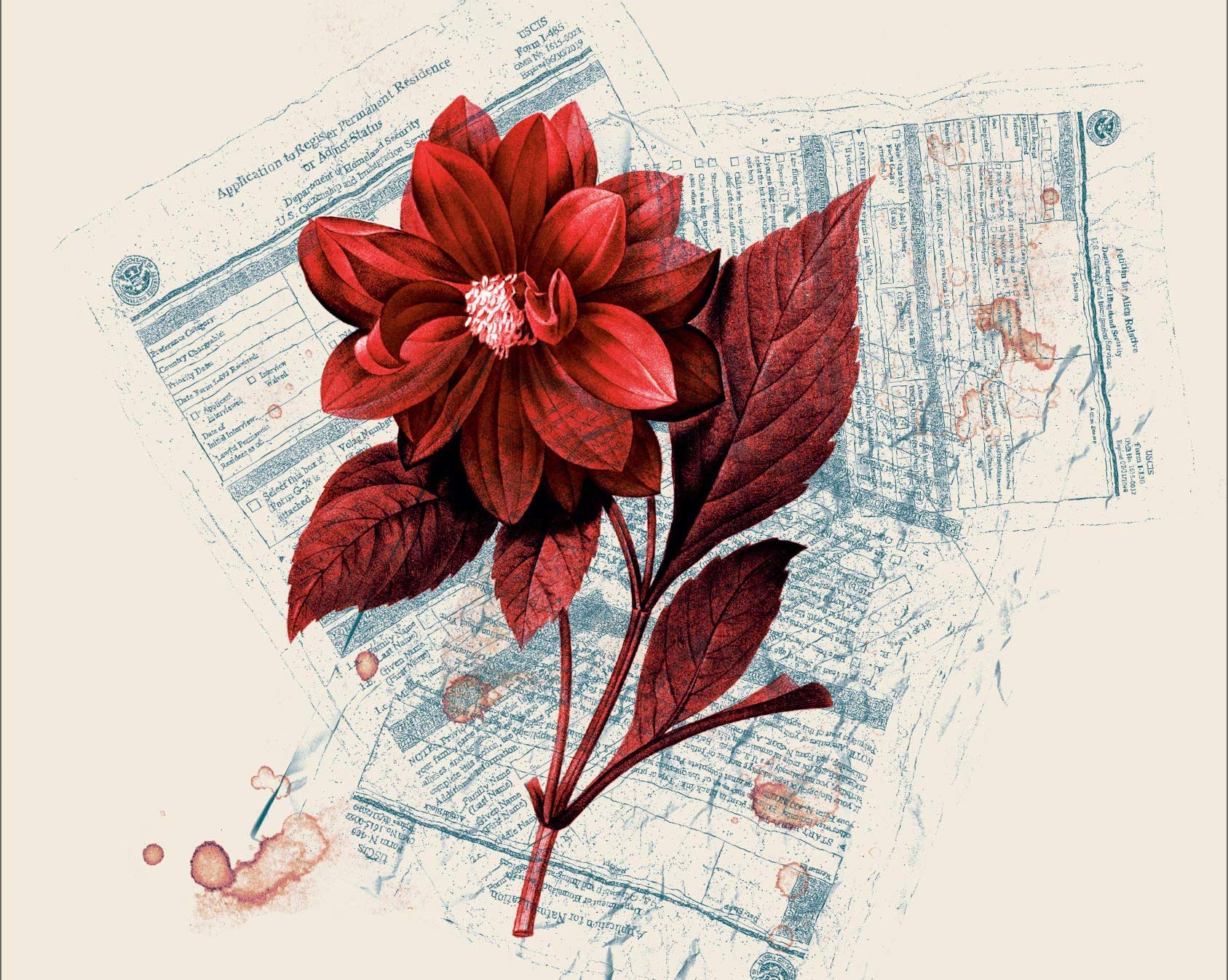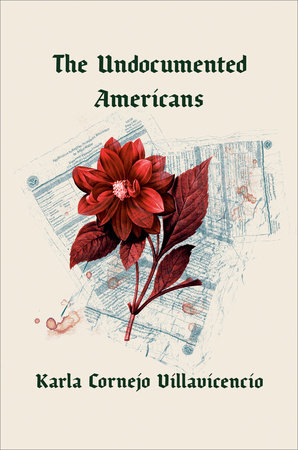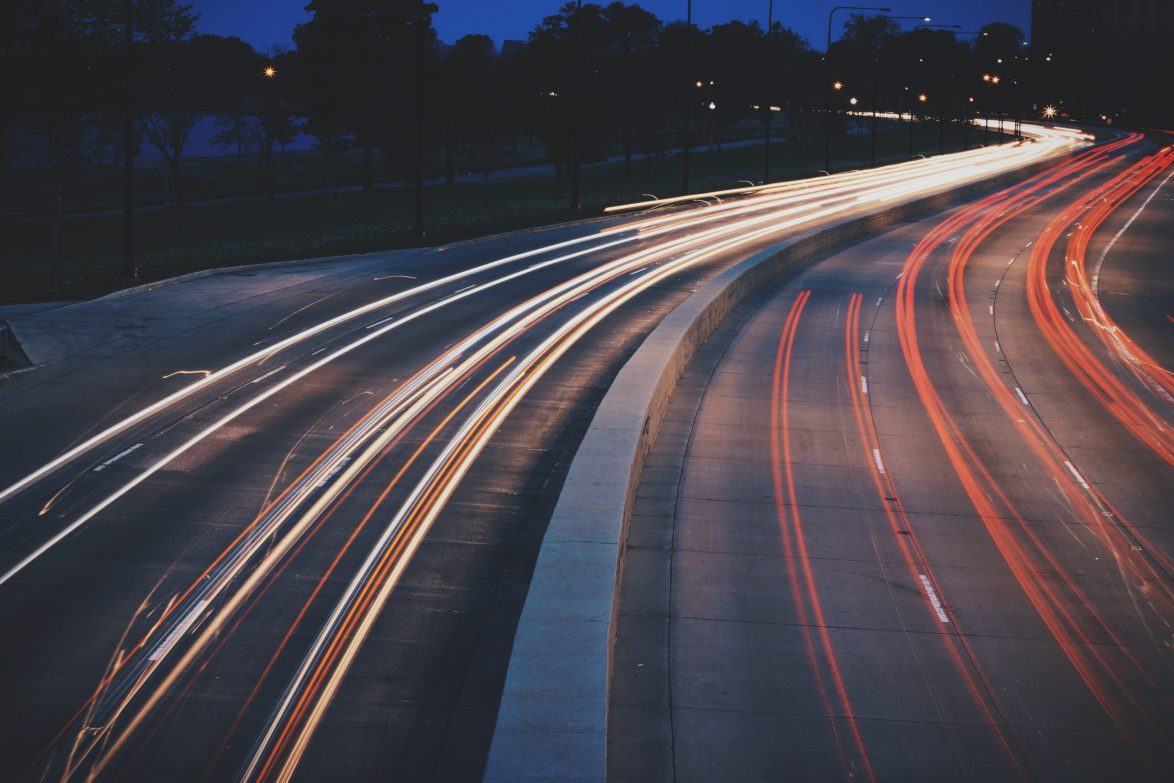interviews
A Book About Undocumented Americans That Doesn’t Pander to White Expectations
Karla Cornejo Villavicencio is the American Dream incarnate and she knows that it's just a pyramid scheme

Now, with COVID-19 spreading at horrifying rates in the United States, and social distancing in effect, we are having to reckon with who is most vulnerable in our country: who gets jobs security, who gets to work from home, who has savings to live on, who has health insurance, who has the protection of intergenerational wealth, who is eligible for the $1,200 stimulus check, who, who, who. A book like The Undocumented Americans by Karla Cornejo Villavicencio is so vital right now. It’s an intimate, probing book, it is both documentary and poetry, a punk manifesto.
Cornejo Villavicencio was born in Ecuador and came to the United States when she was five. She started the book the morning after Donald Trump was elected president:
“I wanted to write about our daily lives, how we survive, how we thrive, how we cope. I would not ask undocumented subjects why they came to America, no focus on push/pull factors, because I believe migration is a human right. I would not ask, except in rare cases, how they came to America. No thrilling, explicit, border crossing stories. I would not ask them if they felt American. No apologizing for our illegality. But I would ask them if they had regrets. I would ask them if they had nightmares.
I was the American dream incarnate—one of the first undocumented students to graduate from Harvard, getting a PhD at Yale, pitching TV shows in Hollywood—I knew the American Dream was a pyramid scheme at which at the bottom were immigrants meant to recruit other immigrants. I knew children of immigrants have to carry the carcasses of those dreams from generation to generation. My book tells those stories throughout my visits to various cities, but it also tells the story of a prodigal daughter—me—finding chosen family in the migrants I met, and finding emancipation from the American Dream I had been striving after my whole life.”
Throughout the book, Cornejo Villavicencio travels across the U.S. interviewing undocumented people, interspersing her and her family’s experiences: day laborers in Staten Island, New York’s whitest, most conservative borough; women who frequent pharmacies in Miami, where they are able to buy low-cost medicines without prescriptions; residents affected by the water crisis in Flint, Michigan; among other lives. Cornejo Villavicencio participates in a vodou cleansing ritual for protection from ICE, visits children in Ohio whose father has been deported to Mexico, and she removes her outerwear so as not to overtly give away the passing of time, when she visits a man living in a church to resist a deportation order. The effect is that migrant bodies that are used as talking points in political debates are finally rendered fully human.
I was delighted to speak to Karla Cornejo Villavicencio by email about empathy, humanizing the political, emotional and mental health for migrant bodies, immigrant feminism, and more.
Alexia Arthurs: I believe that books have lives that go beyond what we can anticipate when we’re dreaming them up and writing them, and later when we publish. Or, that’s been my experience. How do you hope your book, The Undocumented Americans, lives in the world?
Karla Cornejo Villavicencio: I’d like it to be a red string around the wrists of young migrants, children of immigrants, grandchildren of immigrants who feel the heavy weight of the American dream, who feel an all-encompassing affect towards their parents that we know is love but is also muddled by guilt and obligation and like oil and water is hard to separate. I hope my book emancipates them from that burden, even a little. Or allows them to acknowledge it, to name it, which can put them on a path to that emancipation. To fuck shit up.
And for non-immigrants, I hope this book moves them towards something other than pity, or inspiration, or charity, or looking at us and then feeling #blessed about their lot in life. I hope it makes them see undocumented people as fully human.
AA: Reading The Undocumented Americans, I recognized the shame of being undocumented. Growing up, I knew that people like me were referred to as “illegal immigrants” on the news, language that fed my shame, the fact that we were unaccounted for, unwanted, and were doing something bad. You write, “As an undocumented person, I felt like a hologram,” and you write about the unidentified undocumented bodies at Ground Zero. I love that your book puts language to lives that have been forced into the shadows of American life.
In the essay, “A Poetry of Proximity,” Solmaz Sharif writes, “The maiming and obliteration of language preempts and attempts to excuse the maiming and obliteration of bodies.” I wonder, what was the experience of language-making, naming experiences that have been so absent from our social and political lives and literary imaginations?
KCV: My father works with his hands, my mother works with her hands, and they will die prematurely because of it. Because of their sacrifices, I am able to make a living working with my hands too through the most extravagant career—writing. But as my job was paid in blood, I have the ability to kill who I have to kill and resuscitate who I have to resuscitate and that’s what I did in this book.
AA: I’m really interested in hearing your thoughts on this moment of this conversation between poets Natalie Diaz and Leslie Contreras Schwartz in the Kenyon Review. Schwartz asked, “Do you consider yourself a poet of witness? What issues emerge out of bearing witness, so to speak, to a Native experience for an audience that includes non-Native and white readers?” Diaz responds:
“I think witness is sometimes a performance, sometimes a distance, so I am skeptical of what witness has become in poetry. Bearing witness is an interesting term. Most people don’t bear it at all, they just look, they just look with their eyes and write with their eyes, and go to sleep. I don’t believe in empathy. Which might mean I don’t believe in witness right now. Definitely, I don’t believe in empathy. Empathy is selfish. We can’t have empathy for the people we drop bombs on because we aren’t afraid bombs will be dropped on us. Empathy is selfish. If a person can’t imagine (the violence or pain) happening to their body or to a body beloved to them, they can’t possibly understand it.”
I’m interested in how a book like yours humanizes the political—how it can serve as a call to empathize, as a call to action. What do you think? How do you contend with this idea of personalizing the political? Is empathy really selfish?
My parents work with their hands, and they will die prematurely because of it. Because of their sacrifices, I am able to work with my hands too through the most extravagant career: writing.
KCV: My goal was to address a failure of imagination on the part of people who wrote about immigrants, which was a failure to depict us as something other than long-suffering, laboring marvels with an innate connection to the land. And that was true both for fiction and non-fiction. It was a literary quest. Of course it was political, because those depictions depended on beliefs about our abilities to experience pain, or on colonialism, but as an artist I wanted to really play with genre and use genre to force the reader to experience empathy.
Empathy can never be selfish. Empathy is godly. Art allows us to feel for the pain of others who have or will experience pain we cannot imagine or cannot ever happen to us. Even if we cannot feel it, or imagine it, that’s just human limitation. A failure of imagination can be compensated by the construction of a sturdy enough bridge of artistic articulation of that pain, and if it’s honest enough, we may not feel it—though in some cases we may— but we will feel for our fellow humans, and that is the job of the artist. If I only cared about the violence I could imagine realistically happening to me or my loved ones, I would be a Trump supporter and that’s selfish.
AA: I really appreciated how The Undocumented Americans explores the psychological lives of undocumented Americans. I probably had an eating disorder in my early twenties—it’s why I first went to therapy when I got graduate school insurance—and I’ve wondered if my disordered eating and my health issues now, in my early thirties, are because of the thirteen years I lived in the U.S. without documentation. I have an easier time aligning my anxiety with my former immigration status because somehow as a culture we forget that trauma lives in the body. Did you set out to write a book so interested in the emotional and mental lives of undocumented immigrants?
KCV: Yes. My parents’ marriage was falling apart as I was writing this book, and it was causally correlated with my father’s depression and overall decline in health after he turned 50. This happened after his father died and he couldn’t go back to Ecuador to bury him. I had also explored my mental illnesses for about a decade and realized a lot of the symptoms that were co-morbid in my diagnoses were related to my experiences as a migrant. It was a theory I had.
Roberto Gonzales at Harvard told me about the ulcers and headaches and anxiety and actual health problems that he’s seen in younger undocumented populations so I knew that. So when I started asking aging migrants I interviewed whether they had nightmares, for example, or if they drank, or if they experienced anxiety, or if they were lonely and depressed, and the answers started lining up with my hypothesis, I thought about how to depict the reality of our mental and emotional state without depicting us as a sick population, which feeds into the propaganda, but rather a lovely wounded beast, fierce and gentle, fighting till the last breath. We’re really brave.
AA: I’m curious to hear your thoughts on what I would describe as immigrant feminism, a particular kind of feminism I don’t hear included in the conversations my queer white women peers are having. You write about your own mother’s feminist awakening, and you interview so many incredible undocumented women, who organize and care for their communities, but whose voices and experiences are left out of mainstream (i.e. white) feminism. I’m angry that mainstream feminism doesn’t center the most marginalized women, women like the ones in my family, who took care of white children and cleaned in white homes.
I was scared of flying, scared of ICE, and scared of looking into the eyes of other undocumented people and seeing pain I wouldn’t know what to do with.
KCV: The migrant women I met through my research are incredible organizers, activists, and public speakers. They know they’re smart, they know they’re capable. They just don’t have resources and don’t know where to find them unless they’re already connected into activist networks. I think a lot of undocumented women reach this feminist awakening at an older age, once their kids are a bit older, and white, black, queer feminist allies could welcome them by providing them with resources to empower them.
Think, what would a middle-aged undocumented divorced, separated, or single woman need? Well, tools for empowerment include conversations for sure. But also find or translate information in Spanish about domestic violence, divorce, financial independence, financial literacy, getting your GED, taking classes at the local community college, if the woman is a nail tech, teach her how to put up her designs on Instagram! Remember, with undocumented Latinx women, a lot of them married young, and many of them migrated with their husbands or married their husbands as soon as they arrived in America. They don’t know America without their husbands. Encourage them to know America without their husbands!
AA: Let’s talk writing process. I loved your voice throughout the book—it’s intimate, at times, really funny, and searching. For me, the book reads kind of like a quest—you travel across the U.S. interviewing undocumented Americans, reflecting on your and your family’s experiences in the U.S. How did the nature and intent of the project feed the writing process and the crafting of the book?
KCV: I’m a very lonely person. I have few friends, and most of the people I am close to are my neighborhood’s dogs. I was scared when I set out to write this book, scared of flying, scared of ICE, and scared of looking into the eyes of other undocumented people and seeing pain I wouldn’t know what to do with. I wondered if I was putting my parents at risk.
Throughout the journey, I met so many people I grew to love. I wanted them to live, I wanted them to spit in the face of Stephen Miller, all in a row, taking turns. I wanted them to live long lives, eat their favorite childhood foods, never suffer a single day more in their lives, and die peacefully in their sleep in a field of poppies. Obviously I am in therapy. But I now know that there are dozens of homes across the country where there is a couch and a warm meal waiting for me should I need it, and a very long hug, and I’ve never really had that before.
AA: I believe I first heard the term “UndocuJoy” from activist and poet Yosimar Reyes. The movement challenges victimization narratives about undocumented people. I thought about UndocuJoy when I was reading The Undocumented Americans because I was getting to know about undocumented lives beyond the trials of their immigration status. Did you think about joy when you were compiling these interviews? Do you see your book in conversation with the UndocuJoy movement?
The United States does not want immigration reform. They want our people to work for little pay, break their bodies in half, and die in anonymity.
KCV: My priority was depicting complexity and dignity, and dignity doesn’t always look happy. Sometimes dignity looks hysterical. I will preface this by saying, I’m a bit of a Larry David type, so nobody listen to me. But I don’t really like portmanteaus. Making up words with Undocu- as the prefix is something I’m not into. It’s a type of community building that seems inspired by branding. But I appreciate the sentiment. I mean, I also don’t like imperatives so if you tell me to look joyful and post it on Instagram with a hashtag, I will put a thumbtack through my eyeball and tag Sofia Vergara.
In this book, as in all my writing, I wrote and write against people depicting undocumented people as crouched over, with calloused hands, and dirty fingernails, I wrote us as heirs to the myths that people love about this country, I wrote us as frontiersmen. But yes, when people try to pitch me to media, they’re like, she was born in a literal ditch and somehow made her way to Harvard which angers me 50% of the time, and makes me laugh 50% of the time. But the imperative to perform joy—for whom? As undocumented people, our joy can be rage. Our joy can look like revenge. Our joy can look like allowing yourself to cut class one day. Our joy can look like finding a wallet with cash in it and keeping the money but returning the wallet. Our joy doesn’t have to be ready for consumption. Joy is fucking joy. We’re just fucking people. They’re just fucking kids.
AA: I loved the probing nature of your book—“I’m looking to interview children of immigrants partly to get a blueprint for myself because I’m lost and I’m scared…”. I was particularly impacted by the questions you asked about caring for aging migrant parents who aren’t eligible for social security benefits and don’t have retirement plans. Personally, I worry about this too—A woman was telling me recently about her parents’ retirement lives in which they catch up on the Academy Award nominations, and it made me sad, as I couldn’t help drawing comparisons to my mother, who will continue to work for a long time. I’ve published what could be described as a well-received book and yet I still feel shitty for not choosing a more lucrative profession.
Researching and writing The Undocumented Americans, what did you learn about yourself—as a person and as a writer? Did you find the blueprint you were seeking? Interviewing undocumented people, did you learn anything you didn’t know before?
KCV: I learned that the United States does not want comprehensive immigration reform. They want our people to work for little pay, break their bodies in half, and die in anonymity. That was the plan. But our African American and Native brothers and sisters could have told us that. I will still keep fighting for all American citizens I know to vote Democrat. A lot of them don’t, because they’re moral purists. My family feels the consequences of that. But they’ll keep on with their lives, writing for Jacobin, gentrifying Brooklyn.
I have learned that my back is as long as it is wide and I can fit 11 million people on it, and I will feed them all, and clothe them all, and nurse them all back to health, because I am an immigrant’s daughter, and my freedom was paid for in blood, and I have to pay my dues. I’ve learned that I want to stop writing about immigration but I can’t because I can hear all their sighs every time they realize God has let them down but they don’t give up their faith in God yet. I learned that I may have gone insane. And I learned that undocumented immigrants, not Mary, are the people Jesus left to John’s care when he was dying on the cross.









